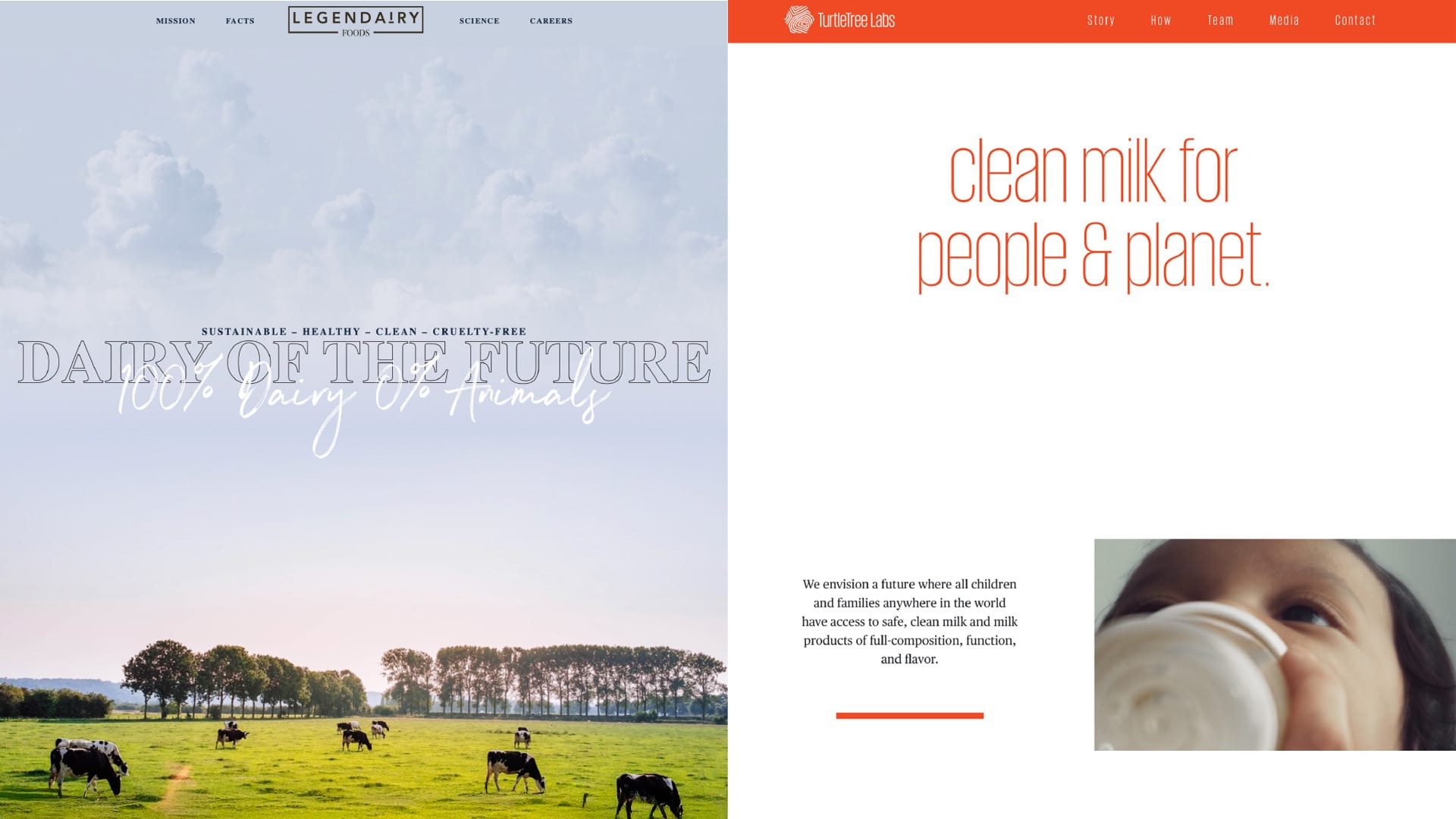UNSTUCK 021: A Tale Of Two Proteins
Why demonstrating scaleable market demand early can determine your fate

Back at our desks, mentally rested but a bit sore from the slopes, we couldn’t help but notice two contrasting headlines popping up across alt-protein land.
The first is another milestone for Formo, which has just secured a €35m facility from the European Investment Bank (EIB) to scale up its precision fermentation capacity. At the same time, TurtleTree, another high-profile precision fermentation player, is in the news for laying off nearly all its staff amid difficulties in fundraising.
While there are many factors that ultimately determine the success or failure of a startup – from team dynamics to just plain luck – we thought contrasting their evolution through a strategic marketing lens would prove to be instructive for anyone looking to scale alt protein ingredients and products.
The Founding

Both Formo (then known as Legendairy Foods) and TurtleTree (then with Labs in the name) were started in 2019, the breakout year for alt-protein startups, by businessperson-scientist duos. During those heady days of unicorns, IPOs and A-list celebrity endorsements, investors were opening up their purse strings and funding rounds were reaching hundreds of millions of dollars for the first time.
Both focused on the dairy category, with similar lofty messaging around reinventing dairy that “realigns your morals and your consumption” in the case of Legendairy Foods and “bypassing the environmental degradation and animal welfare issues of industrial dairy” in the case of TurtleTree Labs.
The details of the science and potential products were scant at this early stage, but both Legendairy Foods and TurtleTree Labs promised animal-identical milk without the cow. The major difference came in the former’s focus on fermentation and casein, and the latter’s bet on cultivating milk using mammalian cells.
The Pivots
Both companies pivoted in 2021, most likely from a combination of reality checks: the regulatory environment; needing scale, price premium or both to achieve unit economics; recognising that lofty, mission-driven, positioning does not drive consumer behaviour (take note if you’re still focused on animal welfare and sustainability as the reasons to buy).
TurtleTree dropped “Labs” from its name and moved from cultivated milk (competing with a mass commodity product) to precision-fermented lactoferrin. Lactoferrin is a premium, growing category, and they were targeting the adult nutrition market. With the company based in Singapore and the US, the markets with the best chance of securing regulatory approval, this pivot was strategically sound to move as quickly as possible to market value creation.
Meanwhile LegenDairy Foods rebrands to Formo, as a consumer-facing brand. “We started with Legendairy Foods as a brand to establish ourselves in the precision fermentation space. With the best talent on board and our first validated prototypes, it is the right time for us to launch a protectable consumer brand”. Knowing what we know now about Formo’s 2024 launch in Germany and success in fundraising, we can retrospectively argue that this strategic focus on bringing a consumer brand to market and proving commercialisation success has paid dividends.
So far, so good. The tale of two protein companies who began with lofty visions to change dairy, learnt quickly and pivoted towards a potential commercial reality. But between the 2021 pivots and the recent news of product launches and funding success/woes these two companies took different paths.
The Launches

Based on what we know today, we’d argue a key difference to where they find themselves was their ability to identify the right market opportunities to go after and successfully sell their product or ingredient against.
Formo prioritised demonstrating market traction, so much so that whilst they navigate the long-road of regulatory approvals for their precision-fermented casein, they took a pragmatic approach to launch with a non-novel ingredient. Some may call this a distraction from their bigger goal, we see it as the journey to get there. In doing so they’ve bought funding on board and engaged Germany’s second largest retailer to both invest in them and support their launch.
They are demonstrating they can engage and deploy the right commercial skill-sets to achieve a significant product launch. While the branding and packaging may not be things of great beauty, with distribution in 2,000 stores in one of the largest and fastest growing plant-based markets in Europe there will be plenty of learnings to build upon from the launch.
Meanwhile Turtletree had success securing the world’s first GRAS for lactoferrin from precision fermentation with their LF+, but their touted upcoming launches lack the confidence of a clear commercial opportunity with scale potential.
Launch partner number 1: MAD coffee in Singapore has grown rapidly since their inception, but in a small category (canned coffee), which is growing slowly, in a small market. Functional, dairy-free canned coffee? Investors just see tiny. Over in the US, launch partner number 2: Strive Nutrition with products utilising both Perfect Day’s BLG whey protein and Turtletree’s LF+. Once again tapping a small player to get a small share, of a small category.
Perhaps there is greater thinking at play, but it’s hard to see a strategic thread between launches of functional plant-based coffee and an immunity-support beverage and ready-to-mix protein powder. Clarity on the opportunity they believe their LF+ can help companies unlock supported by strategic test-and-learn launches, could be compelling for further investment.
Securing a more established or scaled brand (there’s a big space of innovative and agile companies between new-to-market, very small brands and the major MNCs) would bring greater commercial confidence. But to win those companies as customers, as Formo did with Rewe, you need a defined consumer market opportunity they can get behind.
Showing market traction
The industry continues to debate the strategy of B2C vs. B2B for sustainable foods. But that really misses the bigger point, of demonstrating product market fit and commercial opportunity. No-one doubts the importance of working with multinational food companies to have impact at scale. But to successfully get there, and ensure a sufficient funding runway, showing scaleable market traction for your ingredient or product is key.






